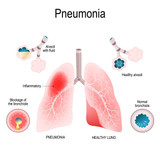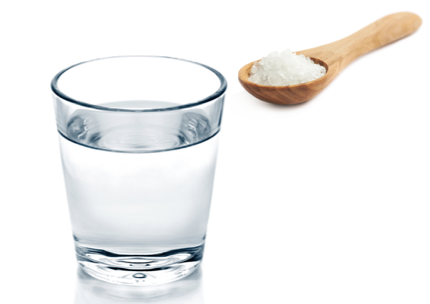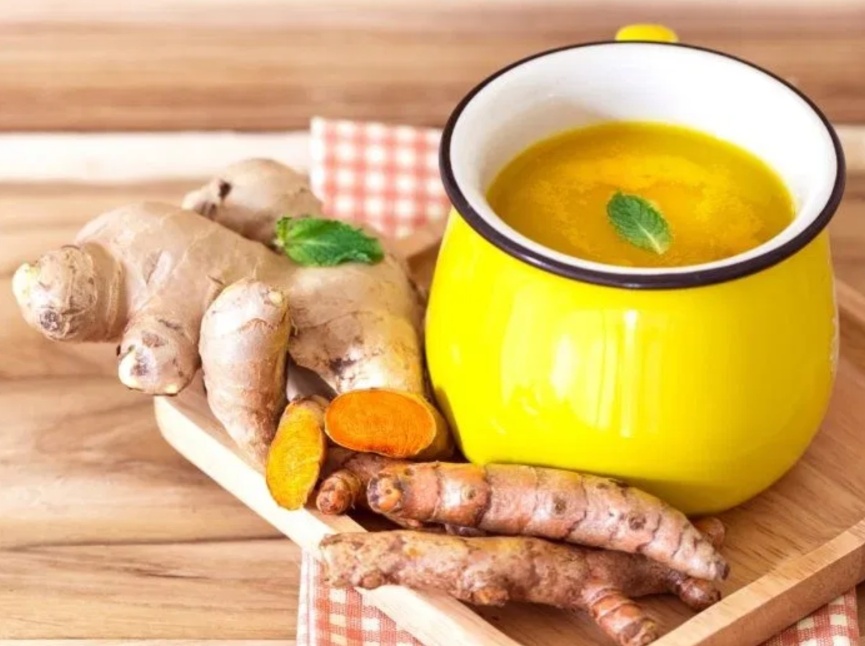Possible natural remedies against COVID-19 and pneumonia

The most common symptoms of COVID-19 (Coronavirus) include:
- Cough.
- Shortness of breath.
- Pneumonia.
- Chest pain.
- Fever.
- Chills.
- Fatigue and muscle aches.
Sometimes, additional symptoms can occur, such as a persistent dry cough that causes a headache.
Cough
A cough may develop early on in the lifespan of coronavirus and pneumonia when the body is trying to expel fluid from the lungs to get rid of the infection. So, using a cough suppressant is not the best idea.
But it is still possible to reduce the severity of a cough, and there are a few simple ways to do this.
1. Peppermint, eucalyptus, and fenugreek tea
Many warm herbal teas may help soothe a scratchy throat, but herbs, such as peppermint or eucalyptus, may be more beneficial.
A study posted to Evidence-Based Complementary and Alternative Medicine found that herbs, including peppermint and eucalyptus, had a soothing effect on the throat of people with upper respiratory tract infections. These herbs may help break up mucus and ease the pain and inflammation caused by pneumonia.
A separate review posted to the Journal of the Saudi Society of Agricultural Sciences noted that fenugreek seeds might help break down mucus. A tea made from ground fenugreek seeds may ease a persistent cough.
Peppermint, eucalyptus, and fenugreek tea are all available to buy in grocery stores, pharmacies, and online.
2. Saltwater gargle
Mucus sitting in the throat and chest can lead to more coughing and irritation. A warm saltwater gargle may help eliminate mucus or germs in the throat, which may provide some relief.

Shortness of breath
Having shortness of breath is a symptom of respiratory infections, as in the case of pneumonia.
3. Caffeine
Drinking a small amount of caffeine, such as a cup of coffee or black or green tea, may help with certain pneumonia symptoms. Caffeine may work to open up the airways in the lungs, which could help a person feel better satisfied by their breathing.
4. Warm, damp air
Inhaling warm, damp air may also help each breath feel less restrictive and keep the throat from tightening. Breathing the steam from a shower or breathing over a warm cup of tea may help in these cases.
5. Rest
Rest is vital for cellular repair in the body, but it may be especially beneficial for shortness of breath. Physical exertion should be kept to an absolute minimum with pneumonia.

Chest pain
Again, chest discomfort usually occurs when a person has pneumonia.
6. Ginger or turmeric tea
Turmeric or ginger tea may help to ease chest pain caused by pneumonia.
Chest pain may be caused when someone has a persistent cough. Dealing with a cough itself may help, but drinking a warm tea made with fresh ginger or turmeric root may also reduce this pain.
The roots of both of these plants can have a natural anti-inflammatory effect in the body.
Chopping up a thumb-sized piece of either root and boiling it in a few cups of water may provide enough tea to last throughout the day.
Ginger and turmeric tea are available to buy in grocery stores, health stores, and online.

Fever
A high fever is another risk in people with pneumonia, and keeping a fever down is vital to avoiding complications.
7. Hydration
When a person has a fever, keeping the body full of liquids and electrolytes is essential to prevent dehydration. Drinking iced beverages or eating homemade ice popsicles may help hydrate the body and cool it down.
8. Fenugreek tea
As the study posted to the Journal of the Saudi Society of Agricultural Sciences notes, making tea from fenugreek seeds may encourage a person to sweat, which could reduce their temperature.
9. Over-the-counter (OTC) pain relievers
Some OTC drugs like ibuprofen (Advil) may help reduce symptoms, including fever and pain. It is important to take the medications with food and not exceed the recommended dosage.
10. Lukewarm bath or compress
Soaking the body in lukewarm water may help to cool it down. If taking a bath is not possible, towels or washcloths dunked in lukewarm water and rung out can be applied to the body to help it cool. Once the towels warm up, they can be dipped in the water and reapplied.
Chills
Chills are often a secondary symptom caused by a fever. When the fever breaks or ends, the chills may subside on their own.
11. Warm liquids
Drinking warm liquids may help warm the body up and prevent chills. This includes warm water, herbal teas, or a bowl of soup for added electrolytes and nutrients.
General symptoms
Additional natural compounds may help the body deal with the overall effects of pneumonia.
12. Additional natural compounds
These at-home products contain compounds that help fight off bacteria, viruses, or fungi and can include the following:
- Garlic.
- Raw honey.
- Cayenne pepper.
- Tea tree oil.
- Echinacea.
Preventing COVID-19 and pneumonia naturally
These should not be seen as a guaranteed prevention method, but more as giving the body the tools it needs to fight off invaders.
As a study posted to Gut Microbes points out, gut health is tied to immune health in humans. Taking good care of the gut by feeding it a varied diet and avoiding inflammatory foods may help keep the immune system strong and avoid infections.
Exercising, managing stress levels, and getting enough rest are also necessary for a person to stay healthy, and may give the body the best chance to avoid infections, including pneumonia.
Takeaway
Pneumonia can be serious, and should not be taken lightly. Most people notice their symptoms improve within the first few days of treatment, but it can take months to recover fully from the respiratory condition.
Giving the body plenty of rest, fluids and a healthy diet that is rich in nutrients is crucial to allow it to heal. Natural home treatments for pneumonia may help alleviate symptoms as well.
